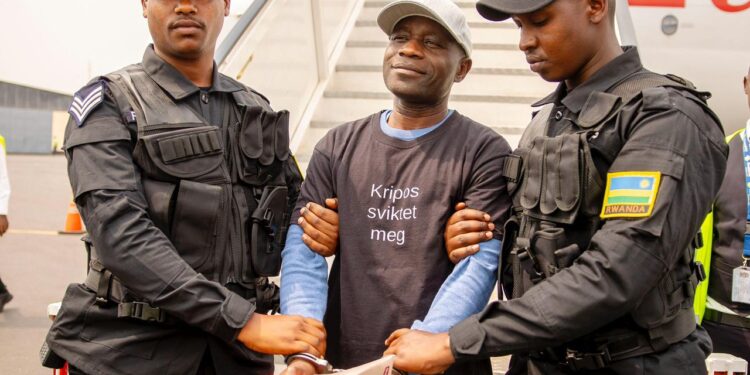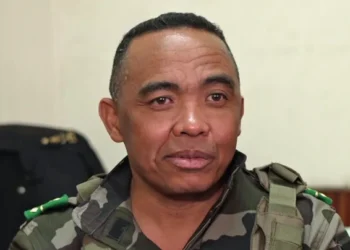Norway has extradited a man convicted in Rwanda for his role in the 1994 genocide against the Tutsi, marking a significant step in ongoing international efforts to hold perpetrators accountable three decades after the atrocities took place. The genocide, which unfolded over roughly 100 days between April and July 1994, claimed the lives of more than one million people, the vast majority of them ethnic Tutsi, along with moderate Hutu who opposed the violence.
The suspect, identified as Francois Gasana, also known by the alias Franky Dusabe, had been living in Norway for several years before his arrest. On Friday morning, Gasana was flown to Rwanda and arrived at Kigali International Airport, where he was formally handed over to officials from the country’s National Public Prosecution Authority (NPPA).
In an official statement, the NPPA expressed its appreciation for Norway’s cooperation, noting that the extradition reflects a shared commitment to justice. “The NPPA commends the Kingdom of Norway’s judicial authorities for the extradition of genocide fugitives, continued cooperation in matters of mutual legal assistance, and contribution to the global effort to fight impunity,” the statement read.
Gasana’s legal troubles in Rwanda date back to 2007, when the Nyange Gacaca court—a community-based tribunal system established to deal with the vast number of genocide-related cases—convicted him in absentia. He was found guilty of participating in crimes of genocide and was sentenced to 19 years in prison. The specific details of his alleged actions during the genocide have not been disclosed in the NPPA’s recent statement, but the conviction stands as part of Rwanda’s broader effort to prosecute those responsible for the atrocities.
Norwegian authorities arrested Gasana in October 2022 in Oslo after an extensive investigation by the country’s Criminal Investigation Service. Following his arrest, the case went through multiple layers of Norway’s judicial system. In September 2023, the Oslo Court ruled in favor of extradition, agreeing with Rwandan authorities that the charges and conviction met the legal standards for transfer.
Gasana appealed the decision, seeking to block his return to Rwanda. However, in April 2024, Norway’s appellate court upheld the original ruling, determining that the extradition complied with both domestic law and Norway’s international obligations. The suspect then made a final appeal to the country’s Supreme Court, but in June 2024, the court dismissed the case, clearing the way for his transfer.
His extradition underscores a broader pattern of international collaboration in bringing genocide suspects to justice. Rwanda has continued to work with countries across Europe, North America, and Africa to locate and prosecute individuals who fled the country in the aftermath of the 1994 killings. In recent years, several fugitives have been arrested and sent back to Rwanda, while others have faced trial in the countries where they were found.
For Rwanda, each extradition represents not only a legal victory but also a symbolic step toward closure for survivors and victims’ families. For the international community, it reaffirms the principle that crimes against humanity have no statute of limitations and that those responsible can be pursued across borders, regardless of how much time has passed.








